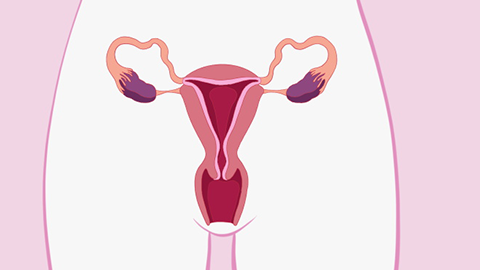Why is the uterus so hard?
Generally, a hard uterus may be caused by reasons such as uterine enlargement during pregnancy, postpartum uterine contraction, myometritis, adenomyosis, or uterine fibroids. If discomfort symptoms occur, it is recommended to seek timely consultation and treatment at a reputable hospital. Detailed explanations are as follows:
1. Uterine Enlargement During Pregnancy
After becoming pregnant, the uterus gradually enlarges as the fetus grows and develops. By the middle and late stages of pregnancy, the uterus becomes harder in texture, which is a normal physiological phenomenon. Regular prenatal checkups should be conducted during pregnancy to monitor the development of the fetus and uterus.
2. Postpartum Uterine Contraction
Following childbirth, the uterus gradually returns to its pre-pregnancy size through contractions. During this process, the uterine texture becomes harder, often accompanied by mild abdominal pain. Adequate rest and sufficient sleep are important after delivery. Uterine contractions can be promoted by allowing the infant to suckle the nipples.

3. Myometritis
Myometritis is mostly caused by bacterial infection. Inflammatory stimulation leads to uterine muscle layer congestion and edema, making the uterus harder in texture. Symptoms may include lower abdominal pain and fever. Antibiotic treatment under a doctor's guidance is required, such as Ceftriaxone Sodium Injection, Metronidazole Injection, Clindamycin Hydrochloride Injection, etc.
4. Adenomyosis
Adenomyosis occurs when endometrial glands and stroma invade the uterine muscle layer, causing thickening and hardening of the uterine muscle layer. Symptoms may include progressively worsening dysmenorrhea and increased menstrual flow. Medication treatment under a doctor's guidance can be considered, such as Gestrinone Capsules, Danazol Capsules, Levonorgestrel Tablets, etc.
5. Uterine Fibroids
Uterine fibroids are benign tumors formed by the hyperplasia of uterine smooth muscle tissue. As the fibroids grow, the uterus enlarges and becomes harder in texture. Symptoms may include increased menstrual flow and prolonged menstruation. If the fibroids are small and asymptomatic, regular follow-up examinations are recommended to monitor changes in the fibroids. If fibroids are large or symptoms are significant, medication treatment under a doctor's guidance can be considered, such as Guizhi Fuling Capsules, Gongliu Xiao Capsules, Mifepristone Tablets, etc., and surgical treatment may be necessary when indicated.
In daily life, maintaining good personal hygiene habits to prevent gynecological infections, engaging in appropriate physical exercise to strengthen physical health, and maintaining emotional stability to avoid excessive tension and anxiety are recommended.




